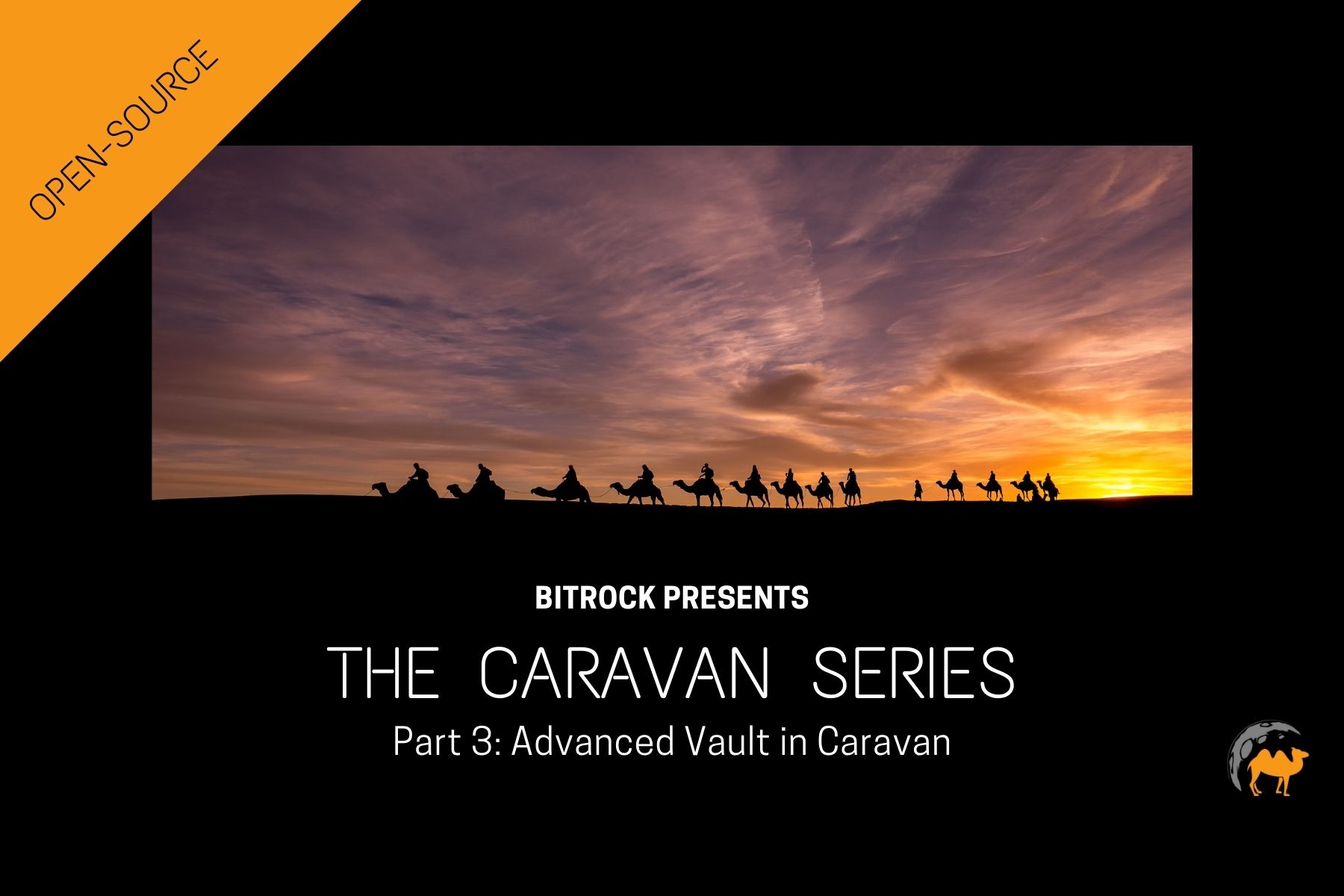This is the third entry in our article series about Caravan, Bitrock’s Cloud-Native Platform based on the HashiCorp stack. Check the first and second part.
Caravan heavily relies on the features offered by HashiCorp Vault. Vault is at the foundation of the high dynamicity and automation of Caravan. We may even say that Caravan would have not been the same without Vault, given its deep integration with all the components in use.
In this article, we show some of the Vault features that Caravan relies on.
PKI Secrets Engine
The PKI secrets engine generates dynamic X.509 certificates. It is possible to upload an existing certification authority or let Vault generate a new one, and in this way Vault will fully manage its lifecycle. This engine replaces the manual process of generating private keys and CSRs, submitting them to the CA, and waiting for the verification and signing process to complete. By using short TTLs it is even less likely that one needs to revoke a certificate, thus CRLs are short and the entire system easily scales to large workloads.
In Caravan we use Vault’s PKI to sign both Consul Connect mTLS certificates and server-side (eg. Consul and Nomad) certificates for TLS communications.
Consul & Nomad Dynamic Secrets
Dynamic Secrets are a key feature of Vault. Their peculiarity is the fact that the secrets do not exist until they are read, so there is no risk of someone stealing them or another client using the same secrets. Vault has built-in revocation mechanisms: this way dynamic secrets are periodically revoked and regenerated, minimizing the risk exposure.
Vault integrates dynamic secrets with different components:
- Cloud providers (e.g. AWS, Azure, GCP, …)
- Databases (e.g. PostgreSQL, Elasticsearch, MongoDB, …)
- Consul
- Nomad
- and many more…
In Caravan, we use the dynamic secrets engine for the generation of access tokens for both Consul and Nomad agents. First of all, we define in Vault the needed Consul and Nomad roles with the needed permissions, and then we map them to Vault roles. This way, we allow authenticated Vault entities to request Consul and Nomad tokens with the permissions defined in the associated role. For example, we set up Nomad Server role and Nomad Client role, with different authorization scopes.

Cloud Auth Backends
Distributing access credentials to Vault clients might be a difficult and sensitive task, especially in dynamic environments with ephemeral instances. Luckily for us, Vault addressed this operation and simplified it a lot in the cloud scenario. Vault implements different auth methods that rely on the cloud provider for the authentication of Vault entities.
For example, when running Vault with AWS instances, it is possible to authenticate the entities according to their associated AWS IAM role. Vault leverages AWS APIs to validate the identity of the clients, using the cloud offered primitives. This way, a Vault client running in an AWS instance does not need to know any Vault-related access credentials to access Vault, instead, AWS directly validates the identity of the client. The same logic applies also to other cloud providers such as Azure, GCP, and many more.
In Caravan, we rely on cloud auth backends to authenticate both the server-side and client-side components of the platform. This way, we no longer need to distribute credentials to the spinned instances, which would be a difficult and tedious task.
Vault Agent
Vault Agent is a client daemon that provides useful functionality to clients who need to integrate and communicate with Vault without changing the client application code. Vault Agent allows for easy authentication to Vault in a wide variety of environments. Vault Agent allows client-side caching of responses containing newly created tokens and responses containing leased secrets generated off of these newly created tokens. Vault Agent allows rendering of user-supplied templates by Vault Agent, using the token generated by the Auto-Auth.
In particular, Caravan relies on Vault Agent templates to render configuration files for a variety of components. For example, the configuration file of Nomad agents is a template rendered by Vault Agent, since it contains dynamic secrets like the Consul token and the TLS certificates used for communication with the server components.
Want to know more about Caravan? Visit the dedicated website, check our GitHub repository and explore our documentation.
Authors: Matteo Gazzetta, DevOps Engineer @ Bitrock – Simone Ripamonti, DevOps Engineer @ Bitrock

